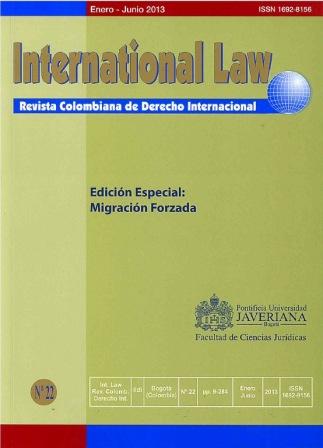Abstract
These notes seek to establish a discussion regarding the evolution of the refugee definition, particularly the so-called environmental refugees in the context of human rights and environmental law in order to establish possible proposals for the modification or extension of the concept, in the international treatise and in the Brazilian law, with regard to the issue of forced displacement in the contemporary world. The text aims to analyze the trajectory and the advancement of human rights in view of the category of refugees in Brazilian and international legislation in the context of new phenomena that challenges the current definition, like desertification, soil degradation, biodiversity loss and insecurity food, which can also cause displacement. These environmental phenomena have gained the centrality of the political debate of the world’s political agenda since the end of the Cold War until nowadays, since few times in history, there have been so many people moving from one country to another, from one continent to another, or even one region to another, fleeing from persecution or natural phenomena or lack of food.
This journal is registered under a Creative Commons Attribution 4.0 International Public License. Thus, this work may be reproduced, distributed, and publicly shared in digital format, as long as the names of the authors and Pontificia Universidad Javeriana are acknowledged. Others are allowed to quote, adapt, transform, auto-archive, republish, and create based on this material, for any purpose (even commercial ones), provided the authorship is duly acknowledged, a link to the original work is provided, and it is specified if changes have been made. Pontificia Universidad Javeriana does not hold the rights of published works and the authors are solely responsible for the contents of their works; they keep the moral, intellectual, privacy, and publicity rights.
Approving the intervention of the work (review, copy-editing, translation, layout) and the following outreach, are granted through an use license and not through an assignment of rights. This means the journal and Pontificia Universidad Javeriana cannot be held responsible for any ethical malpractice by the authors. As a consequence of the protection granted by the use license, the journal is not required to publish recantations or modify information already published, unless the errata stems from the editorial management process. Publishing contents in this journal does not generate royalties for contributors.


